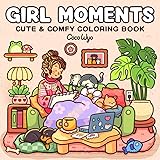Joshua Whitehead recommends three books that centre queerness
The Next Chapter11:52Joshua Whitehead recommends three books that centre queerness
Queer identity, language, the land, Indigeneity are themes that preoccupy Joshua Whitehead. He writes about these things, and he reads about them as well.
Whitehead is a Two-Spirit, Oji-nêhiyaw Indigiqueer scholar from Peguis First Nation. Jonny Appleseed, his first novel, is about a two-spirit person trying to put his life back together following the death of his stepfather.
The book was longlisted for the 2018 Scotiabank Giller Prize, and shortlisted for the Governor General’s Literary Award for fiction and the Amazon Canada First Novel Award. It won the 2019 Lambda Literary Award for gay fiction and won Canada Reads in 2021 when it was defended by actor Devery Jacobs.
He joined The Next Chapter to recommend three books that centre queerness.

Complex Indigenous lives intersect in the stories that make up Coexistence. Stretching across Canadian prairies and the west coast, we travel to reserves, university campuses and lodgings of old residential schools to meet characters learning to live with and love one another and accept the realities of the past, present and future happening together all at once.
Belcourt is a writer from Driftpile Cree Nation in Alberta. His first novel is A Minor Chorus. His debut collection of poetry, This Wound is a World, is unapologetically Indigenous and queer at the same time. Belcourt won the 2018 Griffin Poetry Prize for This Wound is a World. The collection also won the 2018 Indigenous Voices Award for most significant work of poetry in English and was a finalist for the 2018 Governor General’s Literary Award for poetry.
Whitehead says the combination of the personal and politics stood out to him.
“Coexistence is a collection of a handful of short stories that are all pretty much stand alone. They are within their own little worlds and I feel like we’re in maybe to quote Marvel, a multiverse of Belcourt’s thinkings.
“For example, the short story Poetry Class has a narrator who is also a poetry teacher ruminating on what does it mean to teach poetry in 2024. How are poetics important in the global unfolding of war and genocide and ruination and destruction? It’s also, I would say, detailing a frazzling, fractured, maybe even rupturing relationship that’s happening at the same time.
How are poetics important in the global unfolding of war and genocide and ruination and destruction?– Joshua Whitehead
“And what I really enjoyed here is just the deep infusion of politics into the personal. And I think those two are so symbiotic of one another. That’s to look at one is to look at the other. They mirror, right? And for me, poetry class just completely encapsulates it. To me, that’s just beautiful, beautiful writing.”
Blackouts by Justin Torres

This award-winning novel centres on a character named Juan Gay, at the end of his life, he and the narrator trade stories and reflect on moments of joy, lost loves, parents and heroes. Blackouts won the National Book Award, the Californai Book Award and the Tournament of Books.
Justin Torres is an American author from upstate New York. His writing has appeared in the New Yorker, Harper’s Magazine and Granta.
Whitehead says he admired the multi-layered nature of the novel.
“In Blackouts you enter into the realm of the anthropological, the ethnographic — which is we all know here and now hopefully — that that is what causes these essentialized ideas of race, of sexuality, of Blackness — of Indigenity.
In Blackouts you enter into the realm of the anthropological, the ethnographic — which is we all know here and now hopefully — that that is what causes these essentialized ideas of race, of sexuality, of Blackness — of Indigenity.– Joshua Whitehead
“And to take that on in Blackouts, as Torres does to me, is just, it’s so important. And then it’s just like such a queer methodology to use that in a way that is like satirical, which I love.”
What I’d Rather Not Think About by Jente Posthuma, translated by Sarah Timmer Harvey

What I’d Rather Not Think About is a translated book that was originally written in 2020 by and was published in English in 2024. It was longlisted for the International Booker Prize. The books seeks to ask the question: What happens when he person you’ve built your entire life around is suddenly gone? The book of short vignettes centres around a twin whose queer brother recently died by suicide. As she looks back on her brother’s life, she finds moments of humour and gentle melancholy — all while resenting his decision and missing him dearly.
Jente Posthuma is a Dutch writer and journalist.
Whitehead says he likes how these books reframe the trope of queer suffering in literature.
“I think a question I’ve asked myself continually over and over is: Is all literature a form of grieving? Really specifically, as a queer person who is Indigenous, we always have these tragic endings or trauma. And these books don’t shy away from the fact all three deal with loss, with death with suicide, with mental health.
They do so in ways that really take these things that we deem are unhealthy or painful — and then they also flip them, they transform them or mutate them in such a way that we can also see beauty and joy in remembrance.– Joshua Whitehead
“But they do so in ways that really take these things that we deem are unhealthy or painful — and then they also flip them, they transform them or mutate them in such a way that we can also see beauty and joy in remembrance. We can see dread and fear and anxiety. But when they’re inverted, we also see their antithesis, such as awe and assurance and presence.”
This interview has been edited for length and clarity.
View original article here Source









